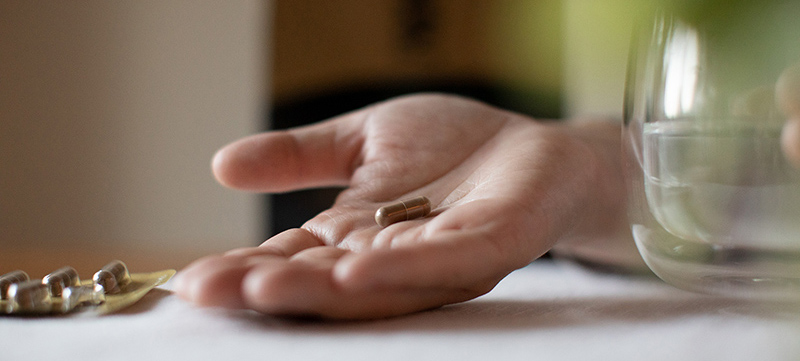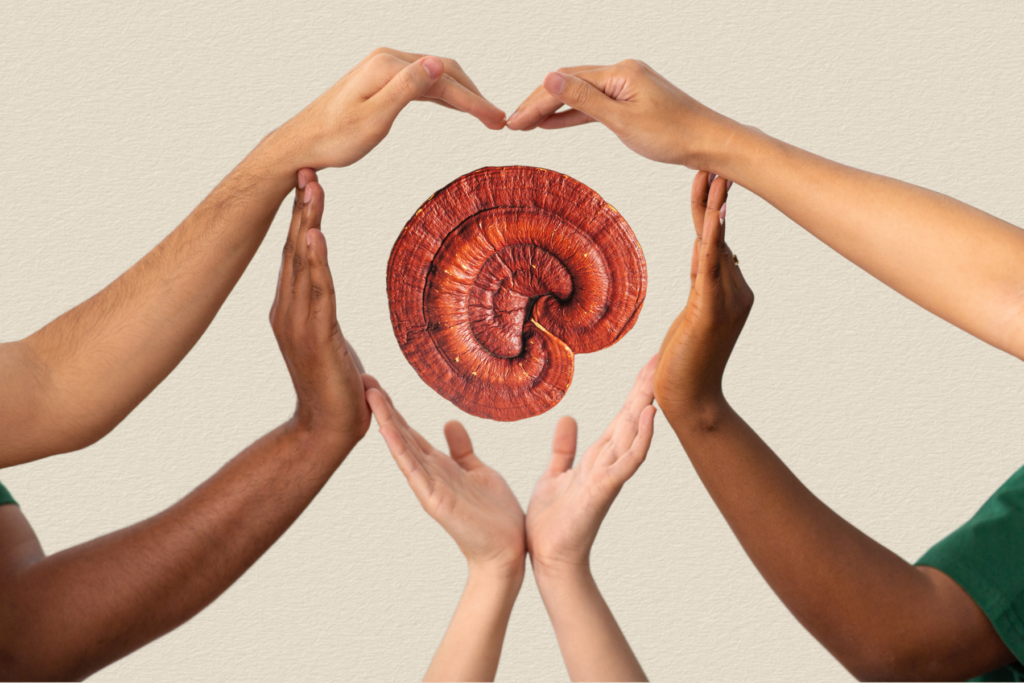Choosing the right reishi mushroom supplement can be overwhelming. One of the challenges is that there are over 80 different species of Ganoderma across the globe. With so many varieties to choose from, it can be a challenge to find a quality reishi mushroom that offers you biggest health benefits.
Reishi is a medicinal powerhouse, bursting with a gamut of curative compounds, including triterpenes, alkaloids, sterols, and various key polysaccharides. This medicinal mushroom is used for a wide range of health reasons, from boosting the immune system and supporting cardiovascular health to improving vitality and promoting longevity, and it has been sought out for thousands of years by emperors, Buddhists, sages, Taoists, monks, and of course, Traditional Chinese Medicine practitioners.
So, how can the fantastic fungus stand up to these remarkable claims? When it comes to the absolute best, Ganoderma lucidum, it is all about quality control.
Quality Control
Over the last few years, mushroom have been receiving a lot more attention for the various medicinal effects. They are touted for their adaptogenic health benefits, but not all products are what they claim to be.
Unfortunately, when an ingredient becomes popular and well known, a slew of products with less-than-stellar quality show up on the market. Bad press comes when products are tested by third party companies and show that little or no active ingredients are present. No one wants to be paying for something that offers little more than packaging and marketing. That’s why it’s important to learn how to choose your quality reishi mushroom product.
Cultivation
It takes the right environment to yield the highest quality reishi. Anything less than the perfect conditions will result in an inferior product.
How reishi is cultivated and grown is vitally important for the output to be high quality. Fungi grafted onto wood logs, topped with nutrient-rich soil, and allowed to grow in a chemical-free environment allows for a clean and potent product.
Reishi requires time to develop its nutrient-rich qualities and benefits. Many producers harvest the mushroom when it is only between three to five months old. While that still might generate a decent yield, it is not nearly enough time to grow a premium product. It takes a full year for the reishi mushroom to properly develop. Manufacturers that fail to adhere to the strict harvesting guidelines risk an inferior supplement that won’t live up to its full potential.
Parts Used
There is some controversy regarding the best parts of a mushroom to use, but while mycelium (root-like structure) may be easier to grow in quantity and does contain the polysaccharides, it is missing many compounds found only in the fruiting body (cap and stem).
In the case of reishi mushroom, the ganoderic acids (for which reishi’s Latin name is derived) are found only in the fruiting body. It’s the ganoderic acids that have many of the health benefits for heart, liver, and kidneys. In addition, some of the polysaccharides found in a mycelium product are actually from the medium (e.g. rice) that the mycelium is grown in, not from the mushroom itself. Why would you want to pay extra for rice when it’s the mushroom that you want?
Extraction
When it comes to a superior supplement, proper extraction is vital. To get the most beneficial results, the reishi mushrooms must be boiled for several hours. Once the mushrooms have simmered, the liquid is left to condense and dry. After the drying process, the remaining powder is ready to be used in supplement form.
TCM’s Reishi
Traditional Chinese Medicine has always used the fruiting body, grown naturally, and water extracted. TCM practitioners primarily use reishi to help calm the nervous system, support a strong body (it is known as the “mushroom of immortality,” after all), and improve immune and lung function. While it probably won’t help you live forever, choosing a high-quality product can help you manage today’s stressful world with more resilience.





